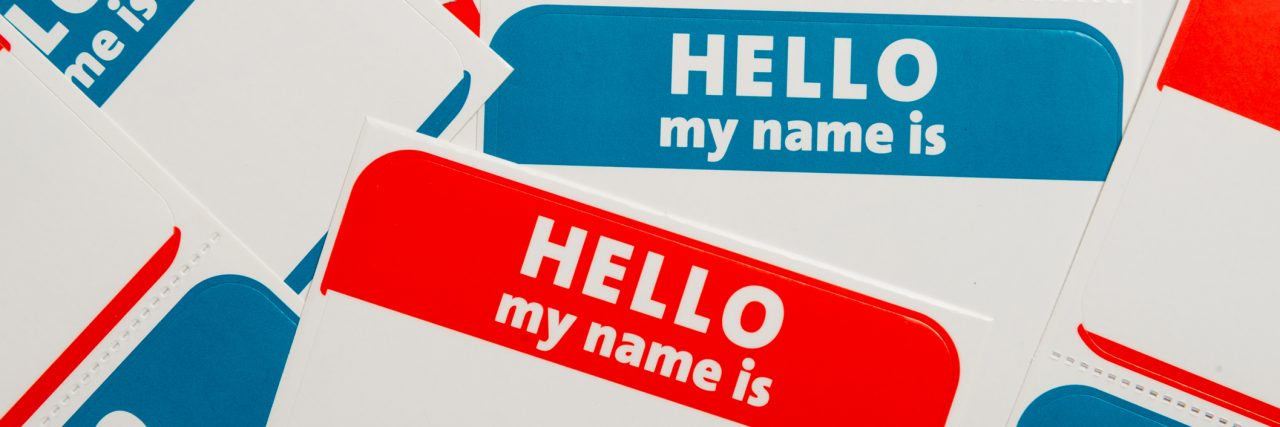Labels. What defines them as acceptable? What makes them tolerable in our society? A label is a defining term used to describe someone or something. It’s a word people can identify with because it’s a generalization of a certain group of people, a look or behavior or belief. A label can be useful, but for mental illness, it can sometimes be degrading, demeaning and hurtful.
In the last six months, I have accumulated some different labels: borderline personality disorder (BPD), social anxiety disorder (SAD) and depression. I never even expected to be hit with one label, let alone three. Three mental illnesses trapped inside my body, making me feel this inexplicable feeling inside.
The Labeling Theory is how people identify with their own self-identity. This self-identity could be influenced by the terms used to classify them. This theory was popular back in the 1960s, and 70s. Modified versions of the theory have been invented as well that are still popular today.
I find associating with my labels helps me to identify my problems, but it doesn’t teach me how to fix them. I mean, the whole point of recovery is to get better, right? Solve the problems, get back on track, that sort of thing. For me, having a label that doesn’t do anything to fix the problem is kind of pointless. Don’t get me wrong, I’m all for wearing my labels proudly and showing the struggles I have overcome. Wearing my labels comforts me sometimes, but I somehow still end up unable to function some days. How do I deal with that?
I find my labels sometimes make me feel worse. I wear them proudly on the outside, but on the inside they sometimes make me cringe. Sometimes, I hate having labels. I hate being those labels. I hate when people use my labels to define who I am. That is something I will not tolerate. I am not a label or a bunch of labels. I am a person. A person of value. A person who needs some help. A person who desires to be happy and loved.
Labels tend to be words that can seem general to others, but to those of us who actually identify with those labels, it’s not so nice all the time. I can often overthink and stress about the label I have been given. I don’t want to, but I can’t help it. It’s my natural reaction to being worried about what people will think of me when I have to have the “mental health conversation” — especially with someone I’m interested in having a relationship with. Warriors, you know what I mean. Happens every time.
Having a label can lead to other things such as stigma and discrimination. According to the Canadian Mental Health Association, “The lives of people with mental health conditions are often plagued by stigma as well as discrimination. Stigma is a negative stereotype. Stigma is a reality for many people with a mental illness, and they report that how others judge them is one of their greatest barriers to a complete and satisfying life.” This shows having a label can affect how others treat people with a mental illness.
Here is another longer and more detailed description that explains the effects of stigma on a mental illness. It correlates to having a label because I believe the label is what gives people stigma in the first place. The Canadian Mental Health Association states, “There are significant consequences to the public misperceptions and fears. Stereotypes about mental health conditions have been used to justify bullying. Some individuals have been denied adequate housing, health insurance and jobs due to their history of mental illness. Due to the stigma associated with the illness, many people have found that they lose their self-esteem and have difficulty making friends. Sometimes, the stigma attached to mental health conditions is so pervasive that people who suspect that they might have a mental health condition are unwilling to seek help for fear of what others may think. Experiences of stigma and discrimination is one of their greatest barriers to a satisfying life.”
So what is the point? I believe we need to get rid of labels and start loving people for who they are, not what a label says they are.
Now, I hope you’ve all learned something here because I have. I learn new things about mental illness every day. I learn about how many people have had it for so long, how many people developed a mental illness so young and many other things. It’s mind-blowing for me to try and understand all of it. I wish there was a way to consume a lot of information about one topic at a time but the only way to do that is to read. One page at a time. So I guess I just have to keep reading and talking to other people who want to share their stories with me.
One significant thing I have learned I can leave you with is to look beyond the labels. Look at the substance, the human substance. The human substance is worth more than anything. I believe people are worth so much more than their mental illness and their label. A label is just a word. Do not be afraid of those of us who have a mental illness.
If you or someone you know needs help, visit our suicide prevention resources page.
If you need support right now, call the National Suicide Prevention Lifeline at 1-800-273-8255 or text “START” to 741-741.
We want to hear your story. Become a Mighty contributor here.
Thinkstock photo via miflippo.

